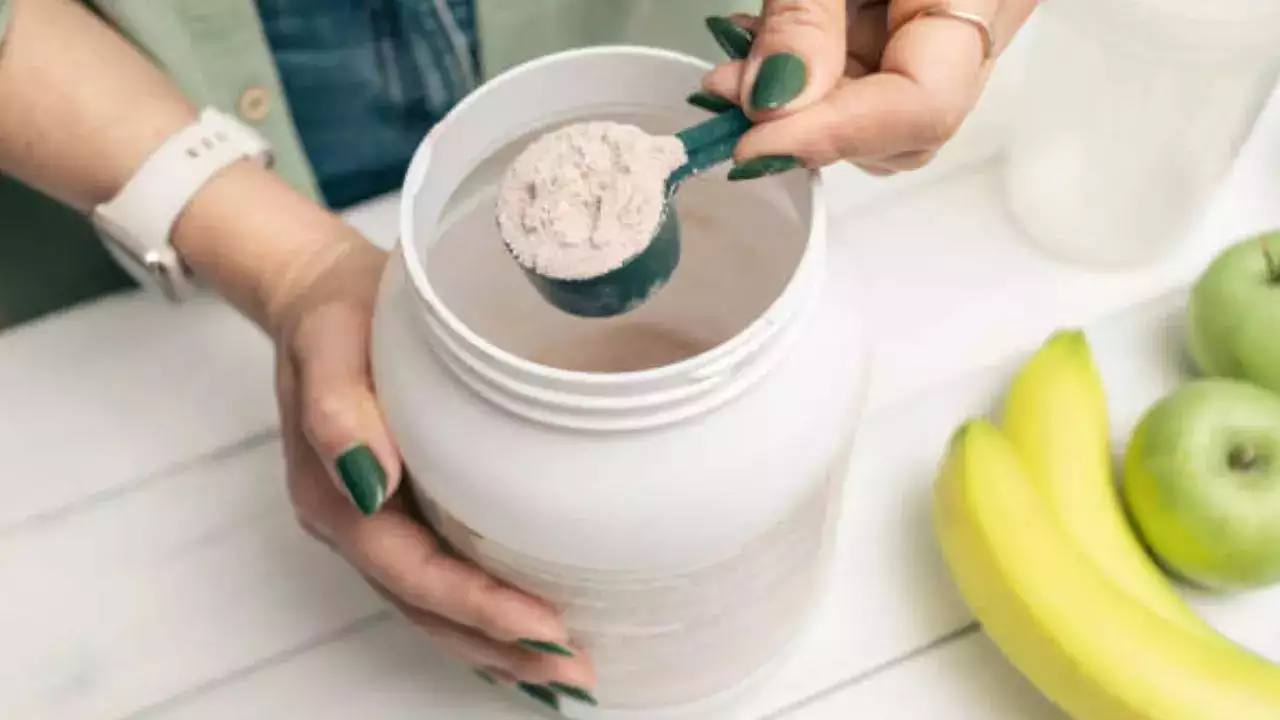
Protein Powder Scandal In Noida: Ways To Identify Fake Supplements (Image Credits: iStock)
For many gym freaks and fitness enthusiasts, protein supplements, including powders, are the go-to solution for building muscle and boosting metabolism. But what if that scoop of protein powder you’re consuming is adulterated? A recent incident that took place in Noida has raised concerns on the same. Authorities arrested three people for allegedly manufacturing fake protein powders showing popular brands after a Delhi-based man suffered health issues from consuming the product.
This incident has raised serious concerns about the authenticity and safety of protein supplements. So how to identify if the protein supplement is safe or fake? Let’s check!
Why Protein Supplements Are Popular?
Protein is an essential macronutrient that helps in muscle repair, boosting metabolism, and promoting overall health. For fitness enthusiasts, protein powders offer:
- A quick and convenient way to meet daily protein requirements.
- Support for muscle recovery post-workout.
- Helps in weight management and fat loss.
How Can Fake Protein Products Affect Your Health?
Consuming adulterated or fake protein supplements can lead to severe health consequences, including:
- Gastrointestinal Issues: Fake products may contain fillers like chalk powder, starch, or low-grade flour, causing indigestion and bloating.
- Kidney Damage: Poor-quality proteins or harmful additives can strain the kidneys, increasing the risk of kidney disease.
- Allergic Reactions: Unknown or unlisted ingredients might trigger allergies.
- Reduced Effectiveness: Fake supplements provide little to no nutritional value, defeating the purpose of consuming them.
How to Identify Fake Protein Products
Spotting fake supplements can be tricky but not impossible. Here are some practical tips:
1. Check the Packaging
Look for spelling errors, inconsistent fonts, or misaligned logos. Genuine products usually have high-quality packaging with proper seals and branding.
2. Verify Batch Numbers and Expiry Dates
Cross-check the batch number and expiry date on the manufacturer’s website. Fake products often skip these details or use invalid codes.
3. Examine the Texture and Smell
Authentic protein powders are smooth and consistent in texture. Fake powders may have clumps, an unusual smell, or a gritty texture.
4. Conduct a Mix Test
Mix a scoop of the powder in water. Genuine protein dissolves easily without leaving residues, while fake powders may form lumps or sediment.
5. Purchase from Authorized Dealers
Buy from trusted retailers or the brand’s official website to avoid counterfeit products. Avoid purchasing supplements at significantly discounted prices from unauthorized sellers.
6. Scan for QR Codes or Holograms
Many brands now include QR codes or holograms for authenticity verification.
Get Latest News Live on Times Now along with Breaking News and Top Headlines from Health and around the world.
